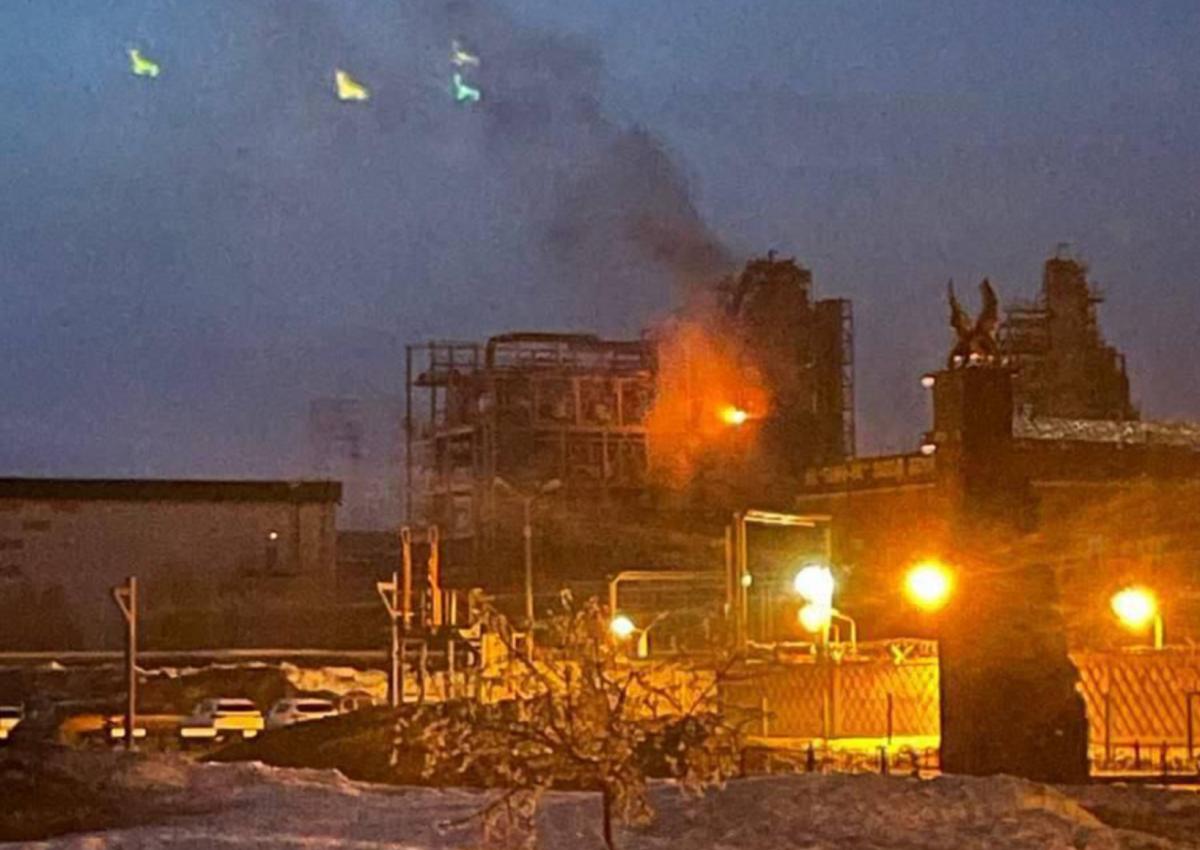Russia has been able to swiftly repair some of the critical oil refineries hit by Ukrainian drones, reducing capacity idled by the attacks to about 10% from almost 14% at the end of March, Reuters calculations showed.
Since 2024, Ukraine has initiated a series of drone strikes targeting Russian energy infrastructure, including several major oil refineries. The attacks have impacted the world's second-largest oil exporter, increasing oil prices.
Ukraine says its drone attacks on Russia are justified because it is fighting for survival as Russia has hit its energy infrastructure since 2022. These strikes have caused damage not only to vital facilities but also unleashed environmental catastrophes, such as extensive floods in Kherson Oblast resulting from the destruction of the Kakhovka dam and water pollution caused by attacks on the Dnipro Hydroelectric Power Plant.
On 2 April, Ukraine hit the Taneco oil refinery, one of Russia’s largest and newest refineries, with a production capacity of approximately 360,000 barrels daily.
Nevertheless, Russia is swiftly repairing its refineries despite facing challenges in accessing Western expertise. This includes the Rosneft-owned Ryazan plant, which has restored operation of the CDU-4 and central CDU-6 primary oil refining units, along with repairs to CDU-4 at the Kuibyshev refinery and CDU-5 at Syzran, which were previously idle for maintenance.
According to Reuters' calculations, Ukrainian drone strikes have reduced Russia's total primary oil refining capacity from around 123,800 tons per day (907,000 barrels per day) to 90,500 metric tons per day (660,000 barrels per day).
However, despite these disruptions, Russia's overall cumulative primary oil refining capacity is expected to reach 4.4 million tons in April, up from 4.1 million tons in March, due to various outages and maintenance.
Since 2 April, there have not been more strikes on Russian oil refineries from Ukraine. Kyiv's decision to pause its strikes apparently follows criticism from the US, the world's leading energy consumer, where soaring fuel prices are a prominent issue ahead of the 5 November 2024 presidential election.
In response to Republican US Senator Tom Cotton's inquiry about the Biden administration's stance on Ukrainian attacks targeting Russia's military capabilities, Defense Secretary Lloyd Austin informed the Senate Armed Services Committee last week that such actions could disrupt global energy markets.
"Certainly, those attacks could have a knock-on effect in terms of the global energy situation, and ... but quite frankly, I think Ukraine is better served by going after tactical and operational targets that can directly influence the current fight," he said.
In addition, Ukraine’s allies may fear that an increase in oil prices can lead to a fall in support of the country’s efforts to fight off Russian troops from its territory.
Earlier, NATO Secretary-General Jens Stoltenberg said Kyiv had the right to strike military targets outside Ukraine.
“Part of self-defense is also that Ukraine has the right to strike legitimate military targets outside Ukraine to defend themselves. I welcome that allies are providing military support for Ukraine to enable their self-defense,” said Jens Stoltenberg during a meeting with Finnish President Alexander Stubb at the Alliance’s headquarters in Brussels.
Stoltenberg reminded that Russia has invaded Ukraine, grossly violating international law, and Ukraine has the right to self-defense enshrined in the UN Charter.
Stoltenberg: Kyiv justified in striking military targets outside Ukraine
Read more:
- US defense secretary warns Ukraine over strikes on Russian oil refineries
- Ukrainian drone strikes cripple over 10% of Russia’s oil refining capacity, NATO official says
- Another oil refinery targeted in Russia’s Tatarstan by drones





